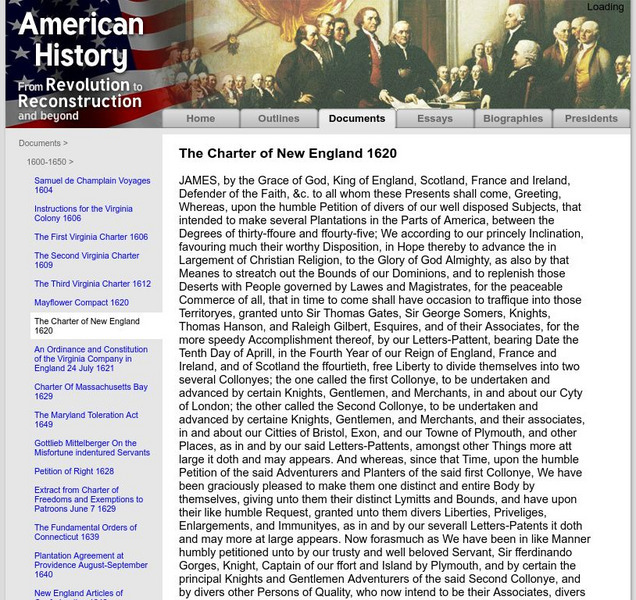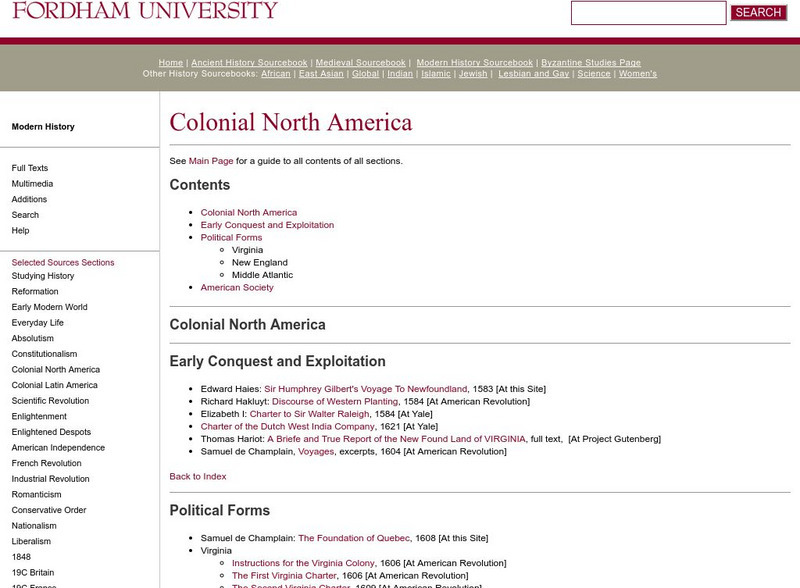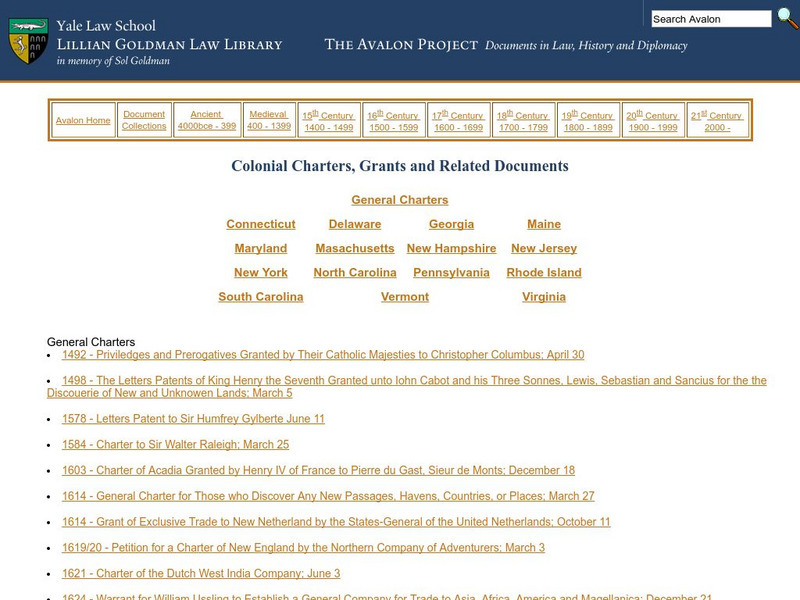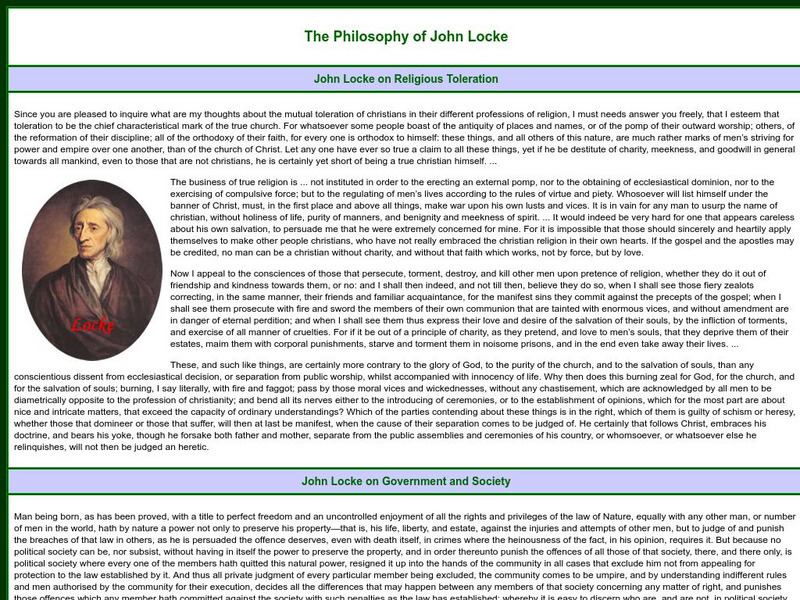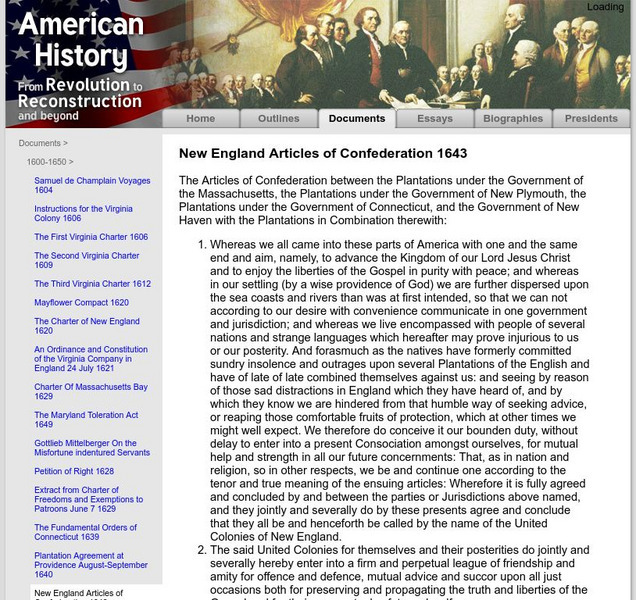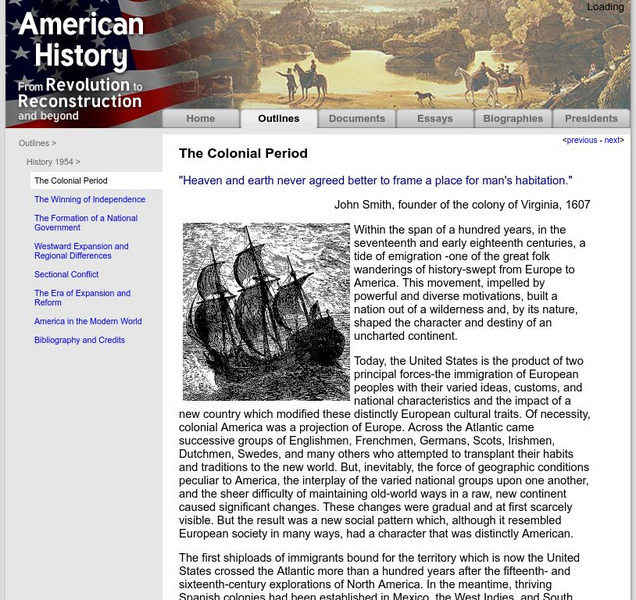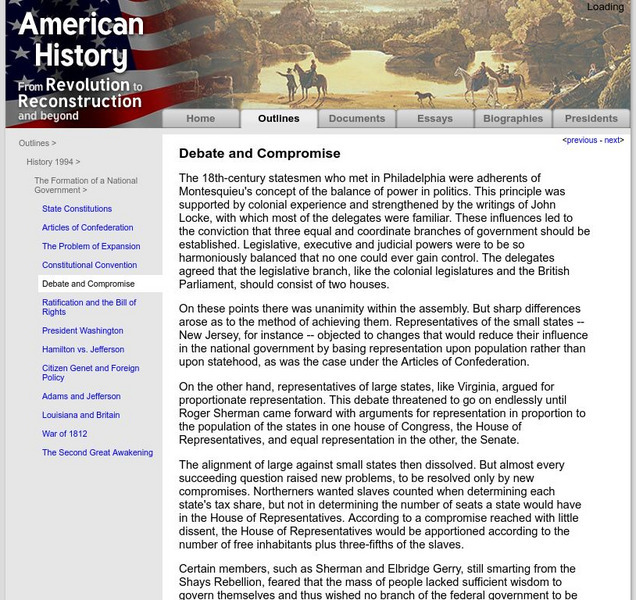Hi, what do you want to do?
Curated OER
Chiapas, Where Is It and Why Should We Care? And What Is the EZLN?
Students research and discuss the Zapatista National Liberation Army of Chiapas, Mexico. They role play the involved parties in the conflict and attempt to debate a peaceful solution.
Curated OER
LAND-GRANT COLLEGES
Students will explore the Morrill Acts and how the agricultural system is involved in education through the land-grant colleges.1. Have groups find the addresses of the land-grant universities in their assigned states and
write a letter...
Quia
Quia: American Colonial Government and Policies
Review your knowledge of the early American government with these interactive games. Play concentration, matching, flashcards, or click on "list of terms" to see the vocabulary used in each activity.
iCivics
I Civics: Colonial Influences
Where did the American colonists get their ideas that lead to a revolution and a whole new kind of government? This lesson plan explores the Magna Carta, Mayflower Compact, English Bill of Rights, Cato's Letters, and Common Sense.
University of Groningen
American History: Outlines: Emergence of Colonial Government
Detailed essay which shows how colonial self-government developed prior to the Revolutionary War.
University of Maryland
Howard County Public School System: Foundations of American Government [Pdf]
How was the foundation of today's representative democracy established in early colonial America? Students will be able to source three documents and corroborate evidence to draw conclusions about the development of democratic ideas and...
University of Groningen
American History: Outlines: British Reluctantly Yield
Discusses development of representative government especially in the New England colonies.
CPALMS
Florida State University Cpalms: Florida Students: Colonists: What Were They Thinking?
This tutorial looks at the British political traditions that influenced the American colonists as they gained their independence from Britain and created their own form of government. A PDF file of the tutorial is available.
University of Groningen
American History: Documents: The Charter of New England 1620
View the complete text of the 1620 British Charter for the settlement of New England granting authority to colonize and govern.
Other
Bringing History Home: Native American History
This 5th grade unit is an introduction to Native American history in the 19th and 20th centuries. The lessons focus on U.S. government policies that have determined the official relationship between the government and Native American...
University of Groningen
American History: Outlines: Foreign Rule Breaks Down
Find out about the development of self-government in the English colonies and the responsibilities of the colonial legislatures.
OpenStax
Open Stax: Disaffection: The First Continental Congress and American Identity
By reading this section from a chapter on "Imperial Reforms and Colonial Protests," students will be able to describe the state of affairs between the colonies and the home government in 1774 and explain the purpose and results of the...
University of Groningen
American History: Outlines: Early American and Colonial Period to 1776
Background information about the literary traditions of the pre-Colonial and Colonial period. Includes information about Native American oral traditions and Native American cultures. Follow the links to the Early American era and to...
Internet History Sourcebooks Project
Fordham University: Modern History Sourcebook: Colonial North America
Scroll through this site from the Modern History Sourcebook of Fordham University to New England and click on the primary source documents concerning Edmund Andros. This site contains dozens of links related to colonial America. Sections...
Yale University
Colonial Charters, Grants and Related Documents
Scroll to Massachusetts and link to the colonial documents establishing the colonies' earliest forms of government and laying the foundation for self-governing and eventual independence from England. Beginning with The Charter of England...
Henry J. Sage
Sage American History: The Philosophy of John Locke
Writings of philosopher John Locke on religious toleration, government and society from which students will gain an understanding of the underpinnings of American government.
CZBrats
The Americans in Panama: Taking the Canal Zone
This page is a chapter from the book entitled "The Americans in Panama." It provides information about the colonial period of Panamanian history. "Panama's relations with the parent government at Bogota, from 1821, the year of...
Other
The Colonial Williamsburg Foundation: Continuing Revolutions
America was victorious in the Revolutionary War, but now faced a slew of problems while trying to set up our new nation. Study how we attempted to solve the problems of establishing a government, forming our economy, meeting the needs of...
University of Groningen
American History: Documents: New England Articles of Confederation 1643
View the complete text of the New England Articles of Confederation 1643, an alliance of the English colonies of Massachusetts Bay, Plymouth, Connecticut, and New Haven.
University of Groningen
American History: Outlines: The Colonial Period
The early settlers to the New World began to map strategy for their own system of government. This site details that strategy and what kinds of events spawned the idea of representative government.
University of Groningen
American History: Outlines: Debate and Compromise
The 18th-century statesmen who met in Philadelphia were adherents of Montesquieu's concept of the balance of power in politics. This principle was supported by colonial experience and strengthened by the writings of John Locke, with...
University of Groningen
American History: Outlines: A New Colonial System
Although some believe that the history of the American Revolution began long before the first shots were fired in 1775, England and America did not begin an overt parting of the ways until 1763, more than a century and a half after the...
University of Groningen
American History: Outlines: Louisiana and Britain
One of Jefferson's acts doubled the area of the country. At the end of the Seven Years' War, France had ceded to Spain the territory west of the Mississippi River, with the port of New Orleans near its mouth -- a port indispensable for...
University of Groningen
American History: Outlines: The Colonial Period of American History
Comprehensive information about the colonial period of American History. Includes information about New England, colonies, government, people, The French and Indian War, and the Salem Witch Trials.












